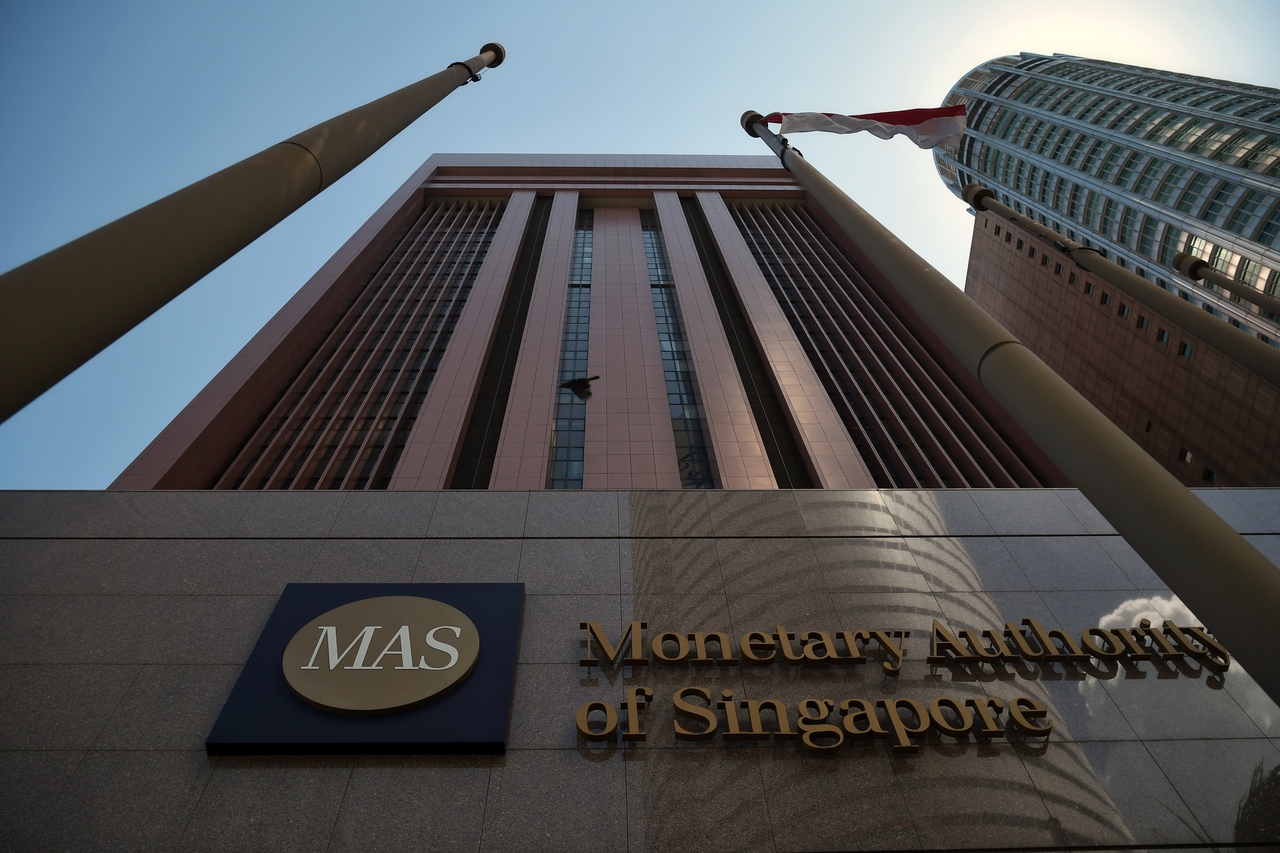MAS expects same risk management standards of cryptocurrency players as of banks: Ravi Menon
Sign up now: Get ST's newsletters delivered to your inbox

To date, 11 services providers have obtained licences or in-principle approvals from MAS to provide DPT services in Singapore.
PHOTO: ST FILE
Follow topic:
SINGAPORE - It is crucial for a digital service provider to have a strong risk governance culture and capability in order to obtain a digital payment token (DPT) licence in Singapore.
Cryptocurrency assets don't pose a threat to the financial system. At this point, money laundering and terrorist financing are the primary risks inherent in the nature of cryptocurrency activities.
Hence, it is important for a company to have a strong board and management, and risk governance culture, said the Monetary Authority of Singapore's (MAS) managing director Ravi Menon in a keynote interview at the Financial Times' Crypto and Digital Assets Summit on Wednesday (April 27).
Asked about the main criteria that MAS considers when issuing DPT licences, Mr Menon said: "Many (firms) are young players with little experience in banking or regulated activities, so there's a cultural issue to bridge.
"They are innovative, they're nimble, they think out of the box, which is all great. You want that, but they do need to have a risk governance culture. And so that's something we pay close attention to."
These cryptocurrency players would need to have a formalised approach to identify and assess money laundering and terrorist financing risks before they offer new products and technologies, he said.
"The risk assessment should consider whether a product has characteristics that promote anonymity, whether the product is known to be used by criminals for illicit purposes, and whether the volatility and liquidity of the product render it susceptible to market manipulation, fraud and so on. So they need to do this risk assessment before they launch products," said Mr Menon.
They are also expected to conduct proper customer due diligence for all digital payment transactions, he said, adding: "This is non-negotiable.
"If a potential customer is assessed to have higher money laundering risks, for instance, then we expect the crypto service provider to take enhanced customer due diligence measures to mitigate, manage these risks, establish the customer's source of wealth, the source of funds, destination and so on. All the stuff that we expect banks to do, we expect them to do on the money laundering front."
To date, 11 services providers have obtained licences or in-principle approvals from MAS to provide DPT services in Singapore.
Luno Singapore was the latest entity to be given an in-principle approval from MAS on Wednesday.
Luno, a global retail-focused cryptocurrency platform founded in 2013 and headquartered in London, recently announced it has surpassed 10 million customers across about 40 countries.
Ms Sherry Goh, country manager for Singapore and global expansion manager of Luno, said: "The requirements are, in our view, reasonable and consistent with our objective of providing a safe environment for cryptocurrency users in Singapore.
"These requirements are in line with Luno's strong focus on compliance and its ongoing advocacy for the effective regulation of crypto asset services."
Describing MAS' licensing process as stringent, Mr Menon said it is necessary "because we want to be a responsible global crypto hub with innovative players, but also with strong risk management capabilities".

